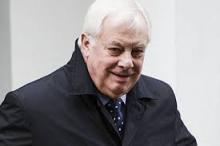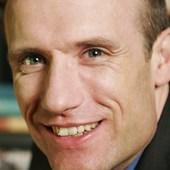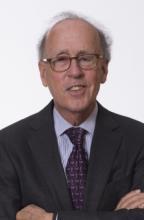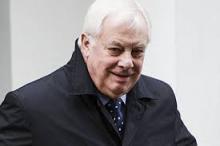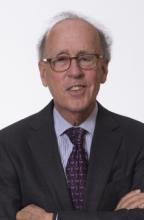he Myth of Western Decline
LONDON – The recent G7 summit in Hiroshima culminated in an impressive show of unity over the war in Ukraine and China’s expansionism. But are analysts and commentators right to cite the group’s declining share of global GDP as evidence of its dwindling power and influence?
China, in particular, has capitalized on this trend in recent years to proclaim the superiority of its one-party system over the “decadence” of wealthy liberal democracies. Meanwhile, the G20 – which, along with the G7 countries, includes China, India, Brazil, South Africa, Indonesia, and eight other countries – has carved out a prominent role on the global stage.
But the evidence for the G7’s decline is hardly overwhelming. While the G20 countries comprise roughly two-thirds of the world’s population and account for 85% of global GDP, the G7 countries alone account for 44% of the world economy despite containing only about 10% of its population.
To be sure, the G20’s economic performance has improved dramatically over the past few years, as billions of individuals in developing countries have increasingly participated in a global economy whose rulebook was primarily authored by the West. As Western democracies became more open to trade following the end of the Cold War, developing countries gained access to huge markets for their often lower-priced goods. For example, Chinese exports to the United States increased from $3.86 billion in 1985 to $537 billion in 2022.
Even so, given that the prosperity of affluent democracies has been a driving force behind developing countries’ success, it would be misguided to interpret this trend as a sign of the West’s decline. Similarly, while it has become increasingly common to predict the end of America’s economic dominance, history suggests that the US will overcome its current problems, as it has consistently done in the past.
Admittedly, the US faces daunting political and economic challenges. The excessive influence of big money has compromised the integrity of its political system, contributing to the erosion of constitutional checks and balances. And deepening polarization, stoked by social media and out-of-control culture wars, has compounded the country’s political dysfunction and contributed to the politicization of its judiciary.
While these are serious problems, they are manageable and solvable thanks to the openness of American society, which encourages free and vigorous debate. Moreover, the US maintains its status as the world’s leading military power and a bastion of liberal democracy, as evidenced by its support for Ukraine. It boasts the world’s most successful corporate sector, and its universities, celebrated for their exceptional research output, are a global talent magnet. And, contrary to its depiction by Chinese President Xi Jinping and his followers as the decadent leader of a declining West, the US exerts vast cultural influence and remains a preferred destination for migrants around the world.
Over the past few years, G7 countries have been vocal in criticizing China for its violations of international norms. At the same time, they have sought to address the country’s often dishonest practices without containing its economic growth and have encouraged China to play a leading role in tackling global challenges. Some analysts have interpreted these actions as a form of support for US efforts to exert control over a rival power.
In his 2018 book Destined For War, political scientist Graham Allison observes that the US and China are headed toward what he called the “Thucydides’ Trap,” a reference to the ancient Greek historian’s account of Sparta’s efforts to suppress the rise of Athens, which ultimately culminated in the Peloponnesian War. A better analogy, however, is the message sent by the Athenians to the inhabitants of the besieged island of Melos before executing the men and enslaving the women and children: “The strong do what they can and the weak suffer what they must.”
Allowing China and other authoritarian countries to shape the rules would result in a world order based solely on this “realist” principle. It is a nightmare scenario that the G7 countries and other liberal democracies must strive to prevent.
China’s assertions about the decline of the West reveal an underlying anxiety. After all, if liberal democracy is failing, why do Chinese officials consistently express their fear of it? The fact that leaders of the Communist Party of China have instructed rank-and-file members to engage in an “intense struggle” against liberal-democratic values indicates that they view open societies as an existential threat.
CPC leaders are known for their suspicion of intellectual inquiry, particularly when it comes to Chinese history. Their efforts to stifle the memory of the 1989 Tiananmen Square massacre of protesting students and workers by the Peoples’ Liberation Army are a case in point. Two recent examples provide further evidence of the regime’s opposition to free speech, its brutal hostility to criticism, and its deep-seated fear of its own people.
First, in Hong Kong, Chief Executive John Lee, the ex-policeman who is overseeing the city’s transformation into a police state, recently ordered public libraries to remove books that might challenge CPC orthodoxy. While depriving people of access to books is not the same as burning them, history teaches us that the latter often follows the former.
Second, a new book by the acclaimed Chinese novelist Murong Xuecun, whose earlier writings have been banned and who now lives in exile in Australia, sheds light on the events that unfolded in Wuhan during the early stages of the COVID-19 pandemic. In Deadly Quiet City, Murong focuses on firsthand accounts of Wuhan residents, including citizen journalists like Zhang Zhan, who faced arrest, torture, and imprisonment when he tried to find out the truth about the situation in the city.
These revelations do not inspire much confidence in China’s willingness to cooperate with Western countries in addressing global challenges. Given its reliance on deceit and obfuscation, and its fear of free and open debate, perhaps China should reflect on its own actions before calling other countries decadent.
Chris Patten, the last British governor of Hong Kong and a former EU commissioner for external affairs, is Chancellor of the University of Oxford and the author of The Hong Kong Diaries (Allen Lane, 2022).
Copyright: Project Syndicate, 2023.
www.project-syndicate.org
This article is brought to you by Project Syndicate that is a not for profit organization.
Project Syndicate brings original, engaging, and thought-provoking commentaries by esteemed leaders and thinkers from around the world to readers everywhere. By offering incisive perspectives on our changing world from those who are shaping its economics, politics, science, and culture, Project Syndicate has created an unrivalled venue for informed public debate. Please see: www.project-syndicate.org.
Should you want to support Project Syndicate you can do it by using the PayPal icon below. Your donation is paid to Project Syndicate in full after PayPal has deducted its transaction fee. Facts & Arts neither receives information about your donation nor a commission.



